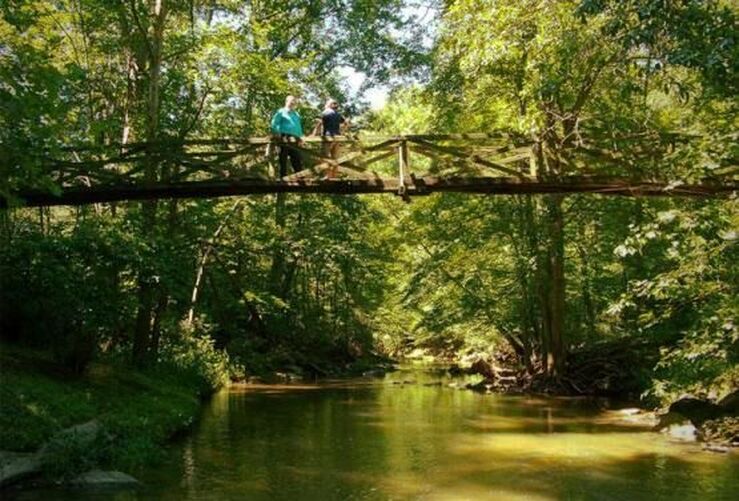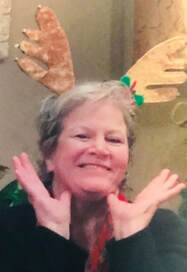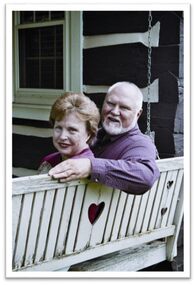|
10/1/2020 Editor's Remarks When I was 21 and in deep, obliterating pain, I went to a treatment center in Kentucky called The Bridge to Recovery. When I was 10, my father got clean from heroin there. This place, tucked away in the rolling green hills of the south, had been in the orbit of my life since I was a child. Now here I was myself, down on soul’s knees, being reworked, inside, from the ground up. Two Weeks ago, the woman who founded The Bridge in the 1970’s, and who helped save my father and I, Carol Cannon, passed away from a sudden brain aneurysm. A year before another counselor from The Bridge, so pivotal in my life, Tina Craft, lost her decade’s long battle with cancer. The last conversation I would have with her, fall coming on, and her garden winding down, would be about unconditional love. Did it exist, was it possible? I wanted, needed to know it might. By the end of our conversation Tina said these words that hang in my heart till this day like a stitch of thread; “I love you kid, and I don’t know if it’s unconditional, it hasn’t really been tested yet, you know.” Boundaries, limitations, not committing ourselves to impossible promises that we may or may not be able to keep, these were the stuff of The Bridge. Shedding martyrdom and rescue complexes and guilt trips. My God, we’re only human. I love you so far. I love you here, and now. That’s all any of us have to offer each other really. You can’t know what you’d do given the unforeseen. Of course we all idealize what and how we'll be when disaster or betrayal or heartache strikes, but the truth is we just don’t know. We haven’t been tested yet. It’s in our nature to get ahead of things, ourselves most of all. But when voice is touching voice, well, that’s a love as unconditional as anything I suppose. It’s a vow of the present, not yesterday or tomorrow’s faulty, unsure promises, just this one moment, here. Between us. Family, friends, strangers, lovers. Tina’s passing hit me hard. Carol’s felt like the loss of a home. For that’s what The Bridge was really, a home. It’s where I learned not just the language of recovery but the astounding fact that I could build and find my own new ‘family of choice’. As Carol said to me towards the end of my stay there; “in building those families of choice you’ll come to find that you no longer have to scrape Hell’s bottom for self esteem.” With her passing I’ve come to realize how from the very beginning, whether I knew it consciously or not, this space here, Anti-Heroin Chic, was my attempt to forge those families of choice, to build a literary equivalent to The Bridge. We all need a place where we can fall together, not just apart. Though that too, is part of it. Many of you reading this, I imagine, have experienced the losses of self inherent in the impossibility of being valued in your home(s) of origin. And so we move out into the world seeking new homes and families of choice, not without some measure of grief that perhaps never will or should leave us. “The only way new territory is gained,” writes Paul Russell, “is by exploring the outer limits of old vulnerabilities.” We bring everything that ever happened to us with us, and over time, like a stone smoothed over by water, we are changed while also somehow staying the same, staying stone touched by water. “In some peculiar way,” Russell continues, “the enterprise of life requires that we both remain the same and change, all at the same time.” We had a practice at The Bridge of checking in with each other whenever we felt an inner unspeakable dark building up inside us, of shame or sadness or anger or numb. It involved going from person to person in the circle of the group room and asking them, “am I okay?” “Yes, you’re okay”, they’d say. “Can I have a hug?” Those who felt comfortable doing so would say “Yes” and with each hug came these words again; “you’re okay, you’re okay.” What was embedded in this practice was something that most of us never got; the reassurances that we belonged, that we mattered, that we may even have royally fucked up our lives, but that no matter how far we had fallen, or come apart, it did not make unprecious, or unworthy, our lives. I have come to think, to hope, that what we do here is a small version of that practice. Each poem, each story, I find, is asking of the reader something equivalent to this; knowing where I’ve been, what I’ve done, what I've failed to do, what’s been done to me, what I’ve lost, and what I’ve buried, am I okay? Do I belong, here? Yes, you belong, here, in this world, in these pages. Bob Dylan says; “I will give you shelter from the storm.” Here, too, modestly, for a moment. A place to say what happened. A place to be heard. Hear me out, is this not what we’re asking each time we send our work out? It seems all any of us can hope for is to be able to come out of all the things that happened to us with a few stories in our hands. You can call them art, if you want. Or you can call them a life. It seems to me unconditional love is found in the acceptance of our own limitations, and, in knowing what we know, up to this point of our lives, choosing to give all we’ve got to the voice right beside or in front of us. No impossible promises, grand gestures, but with fall coming on, and our gardens winding down, we wonder what we’re capable of. This love. Are we okay? Do we belong? Does what we do matter? Does it make a dent? You best believe it does. There is a gentle mercy in the heartache and the loss that reworks each of us like water. So far. We have come so far. To be here. James Diaz Founding Editor Anti-Heroin Chic In loving memory of Tina Craft and Carol Cannon |
AuthorWrite something about yourself. No need to be fancy, just an overview. Archives
April 2024
Categories |



 RSS Feed
RSS Feed
